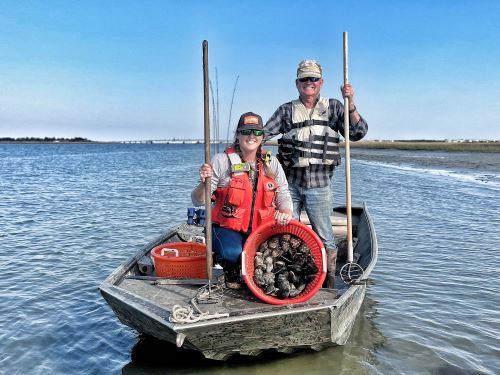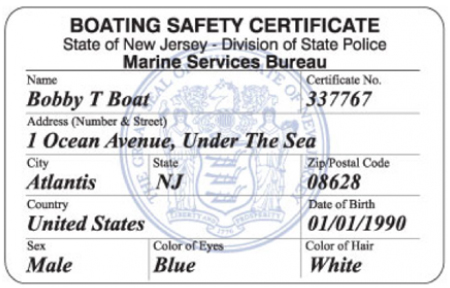Marine Services Bureau
Mandatory Cold Weather Personal Flotation Device (PFD) Wear FAQ’s
November 1 – May 1
13:82-1.4(f)
- What is a recreational vessel?
A: Federal law defines a recreational vessel as a vessel being manufactured or operated primarily for pleasure; or leased, rented, or chartered to another for the latter's pleasure. 46 U.S.C. 2101.
- To what type of vessel does the mandatory winter PFD wear regulation apply?
A: All recreational vessels under 26 feet, including rowboats, canoes, kayaks, and stand-up paddleboards. In order to be exempt, the vessel must meet one of the listed exemptions of N.J.A.C. 13:82-1.4(d):
(1) Vessels owned and operated by the United States;
(2) Vessels owned or operated by the State of New Jersey or an agency thereof, a county, a municipality, a volunteer first aid, rescue or emergency squad, a search and rescue unit established within a fire district created pursuant to N.J.S.A. 40A:14–70 or a volunteer fire company created pursuant to N.J.S.A. 40A:14–70.1 when a child is on board as a direct result of being rescued from an emergency situation;
(3) Commercial vessels, which are any vessel longer than 65 feet and operated for a purpose that requires a United States Coast Guard Operator’s License; and
(4) Ferries, which are any vessels longer than 65 feet operating on a short run on a frequent schedule between two points offering a public service of a type normally attributed to a bridge or tunnel.
- Are there any other exemptions for the mandatory PDF wear?
A:This regulation applies to all vessels except surfboards, racing shells, rowing sculls and racing kayaks
*Stand Up Paddleboards (SUP) – PFD’s are not required when operating SUP within the narrow limits of a swimming, surfing or bathing area
- What does Underway mean?
A: A vessel that is not at anchor, or made fast to the shore, or aground.
So, the PFD must be worn when making way (during operation), or drifting. If you are anchored, or hunting or fishing up on a bank or in the marsh, it would not need to be worn.
- How does NJSP intend on regulating bi-state waters like Greenwood, Delaware River, or Raritan Bay during the winter months?
A: The regulations will depend on what side of the state line your vessel is located. When you are boating in New Jersey water, you must follow New Jersey Laws and regulations.
- Are any type of wearable, USCG approved PFD acceptable? For example, are the belt style, type V USCG approved inflatable PFD approved for this?
A: The PFD should be USCG approved, the proper size for the wearer, and in good serviceable condition. If they are USCG approved, it will be stamped on or inside the PFD.
- If I am on a boat 26ft or longer, are life jackets mandatory to have on while underway?
A: If your vessel is 26’ or longer you are not required to wear your US Coast Guard approved PFD. You are however, still required to have at least one US Coast Guard approved PFD per person on the vessel and accessible. If any occupant of the vessel is 12 years of age or younger, they are still required to wear a properly fitted USCG approved PFD, while underway, outside the cabin of the vessel.
- Under the new regulation requiring PFDs in use when the vessel is underway, between November 1st and May 1st, are auto-inflatable PFDs permitted?
A: Inflatable PFD’s are acceptable as long as they are USCG approved, the proper size for the wearer, and in good serviceable condition.
- How is the overall length of a vessel measured?
A:The length of your vessel should be what is stated on the registration card. The length should be from the tip of the bow in a straight line to the stern of the vessel. Bowsprits, rudders, outboard motors, and motor brackets, handles and other fittings, attachments and extensions are not included in the measurement.
- What is the reason for this mandatory winter PFD wear regulation?
A: The goal of this regulatory update is to prevent hypothermia deaths, and to decrease the risks placed upon first responders, during winter search and rescue operations, on the waters of New Jersey. In almost every instance of a vessel related drowning, the victim was not wearing a life vest. In the event you do go into the water during the cold-water months, wearing a USCG approved PFD allows for increased potential for rescue and survival, and worst-case scenario at least a recovery. The repercussions for not wearing a PFD during the cold-water months can potentially be fatal should an accident, mishap, or sudden weather event occur.





